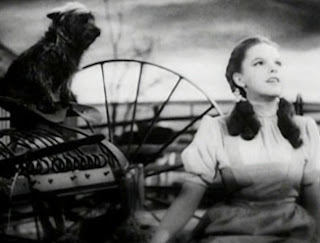
It is old news that artists are often driven by unhappiness and unfulfillment, and that their art is frequently an attempt to give shape to some kind of beauty that they feel lacking in their actual lives. This inevitably raises the question as to the degree to which art is dependent on unhappiness. This was one of the central questions I addressed in Bluebird, through the vehicle of the poet Thomas Fairchild's seemingly perpetual spiritual suffering and the way in which his poetic art, and therefore the fulfillment of his vocation as a poet, seemed not only to thrive, but actually to depend, on his unfulfillment as a person.
Of course, I would not have chosen to write an entire novel on such a topic if it were not deeply personal and relevant to me. Though I have had, and continue to have, many things in my life for which I feel immensely grateful and blessed, and which do bring me great amounts of happiness, whatever happiness I have has always found itself in tense coexistence with a deep, roiling unhappiness and a sense of profound longing and unfulfillment. This is something that I have felt at least throughout my adult life, perhaps longer. I have always seen my art, whether in the form of fiction, poetry, or music, as being inspired and driven by this unhappiness. I have been less productive in happier periods of my life, and more productive in less happy periods.
So what does this mean? That artists are doomed to unhappy, perhaps even tragic, lives, and that this unhappiness is a necessary requirement for the fulfillment of their calling? I don't know. Perhaps only a certain kind of artist requires the fuel of suffering in order to create art. Perhaps other artists create out of a sense of happiness. But to me, this question is hardly relevant, because either way I find myself to be the type of artist whose art is fueled by unhappiness. I think for this reason I have a certain fear of happiness, since it would presumably detract from my vocation as an artist. (Although I tell myself wryly that this is hardly anything to worry about.)
Although I don't think this term exhaustively describes all of my writing, I am, among other things, a tragedian. The reasons for this don't have anything to do with having lived a tragic life, because in general my life has been very good. This is a trait I can see having existed in myself since childhood, which in my memory was quite happy indeed. I think I was, as they say, born this way. I have come to think of my role as a tragic poet as a special calling or vocation, one that is equal parts fearful and wonderful.
Thomas Fairchild feels himself to be a sacrifice, his suffering apparently necessary in order to fulfill his destiny as a great poet. Ironically, his fulfillment seems to require his unfulfillment. Or rather, in order to fulfill his highest destiny, to be the greatest version of himself, he must sacrifice a life that might have been happier, more comfortable, and more content. He must sacrifice something good in order to attain the best... the best for himself, and for the world. And true sacrifice means sacrificing something good. As his friend Aurora says, "It's not a sacrifice if you don't feel sad about it."
Ultimately, the sacrifice Thomas must make, if he is to fulfill his destiny, is his own happiness. But what, we might well ask, could be better than our own happiness? Perhaps that is a question well worth asking. Perhaps, as Thomas himself says, happiness is not just an emotion. Perhaps it is a state of being... the fulfillment of one's own being, which does not always take the form that we might imagine. The fulfillment of one's being does not always equal the fulfillment of one's desires, dreams, and wishes. Like all those who face the choice of sacrificing themselves for a higher good, it comes down to deciding whether one would be happier choosing oneself over the greater good, or the greater good over oneself. It comes down, in other words, to realizing that true happiness does not consist in getting what one wants as much as it does in realizing and accepting that one's existence has meaning and significance--and therefore fulfillment--only in loving relationship to others, and to the world.



